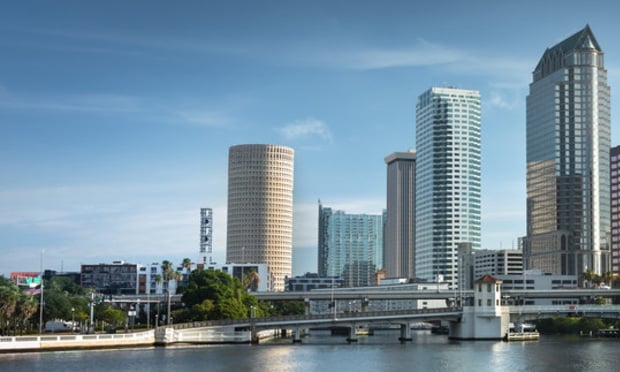Though Fort Worth, much like Dallas, its neighbor to the east, hasn't been immune to the economic issues plaguing the U.S. throughout 2009, local experts tell GlobeSt.com that the city, and Tarrant County, didn't enter the economic downturn with as many problems as Dallas.
"Fort Worth didn't get as overbuilt as Dallas. We didn't see the massive commercial development here that Dallas saw, particularly in North Dallas," comments Jim Harris, founder of real estate developer James R. Harris Partners.
"We came into the downturn with a commercial market that was steady, but not overbuilt by any means," adds Ben Loughry, managing director of Integra Realty Resources DFW LLP. "Likewise, our occupancies dipped some, but haven't dipped to the extent that our neighbor to the east has."
This is not to say, however, that the recession hasn't taken a bite out of Cow Town's commercial real estate. At the recent "Tarrant County Outlook – 2010" presentation, Hillwood Properties' Mike Berry pointed out that the Tarrant County deal flow on the industrial side increased slightly during Q4 2009, though overall absorption in 2009 was well below the historical average, standing at negative 1.8 million square feet compared to a positive 4.4 million square feet in 2008.
Meanwhile, on the office side, Jones Lang LaSalle's Todd Burnette pointed to a vacancy of close to 16%, with concessions up and effective rents down by 20%. Still, he pointed out, the good news for Fort Worth and Tarrant County was that with the financial crisis averted, equity markets would likely improve, though it's still too early to celebrate good fortune. But most Fort Worth landlords were likely to remain stable, he noted.
According to Transwestern's year-end report, Dallas showed 238 million square feet of office space with a vacancy of 18.7%, compared to metro Fort Worth's 46.4 million square feet inventory and 12.5% vacancy. The total industrial space in Dallas is 455 million square feet with vacancy standing at 12%, while Fort Worth's 245 million square feet had a vacancy of 10.8%.
Furthermore, Harris says, the likelihood of any kind of construction in the near term is slim to none, except for institutions such as hospitals, schools or government buildings. "I wouldn't want to build an office building today, when the one across the street might be owned by Bank of America or Citicorp, and might be put on the market at a lower rate," he explains.
This hasn't stopped corporations from other parts of the nation from considering Fort Worth as a place in which to do business. Loughry says. The Fort Worth Chamber of Commerce is working with several interested companies, and while the industrial sector has the space to accommodate such moves, office space is a little tight, though there is some available.
"The main thing now about the area, is those corporations are as willing to look at Alliance, north of Fort Worth as they are anywhere else in Dallas," he adds.
Continue Reading for Free
Register and gain access to:
- Breaking commercial real estate news and analysis, on-site and via our newsletters and custom alerts
- Educational webcasts, white papers, and ebooks from industry thought leaders
- Critical coverage of the property casualty insurance and financial advisory markets on our other ALM sites, PropertyCasualty360 and ThinkAdvisor
Already have an account? Sign In Now
© 2024 ALM Global, LLC, All Rights Reserved. Request academic re-use from www.copyright.com. All other uses, submit a request to [email protected]. For more information visit Asset & Logo Licensing.








